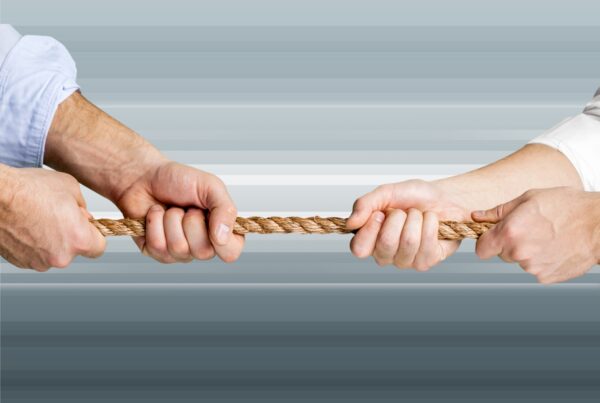Last Updated on May 30, 2025 by Dave Schoenbeck

If you’re tired of constant interruptions, here’s what you need to know about how to avoid interruptions at work.
Why Are Interruptions Harmful?
Aside from being somewhat aggravating, it has been found that even the most minor workplace interruptions can significantly impact your workflow. I’ve written before about how interruptions are one of the biggest time wasters at work: emails alone have been found to disrupt us 37 times per hour!
According to the Washington Post, we can lose up to 6 hours each workday to interruptions between the time it takes to address the disruption and the time we need to switch back to the original task and find our focus.
For some people, that leaves just 2 hours a day to get work done—not very efficient. That means learning to avoid interruptions at work isn’t just helpful; it’s necessary to get the job done.
How to Avoid Interruptions at Work
One of the primary sources of interruptions at work is from teammates, whether they have questions for you or want to chat. Letting employees know when you need to concentrate is up to you.
Start by scheduling “no-interruption periods” during your day and adding them to your calendar so everyone can see them. Let employees know you will not be disturbed during these times, and refer any urgent matters to a trusted manager.
Another strategy is to work from a conference room or other area your team wouldn’t consider looking for you. If you’re not at your desk, they’re more likely to save non-important interruptions for whenever they next see you. If you can’t do that, put your headphones in when you need to concentrate—it’s the universal sign for “don’t talk to me.”
Suppose the issue is an employee bombarding you with questions about a project you’ve assigned them. In that case, you might want to take another look at your delegation strategy—being clear about your expectations up front can save you the trouble of answering questions later. Effective delegation will help mitigate time management interruptions.
Avoiding Personal Distractions
When considering how to avoid interruptions at work, it’s essential to examine our habits as well. If you compulsively check email or voicemail messages, avoid the temptation by blocking these applications while working. Closing out of your inbox until you’re ready to check it saves you the distraction of seeing those notifications pop up.
Change your voicemail message to indicate that you’ll only check messages three times a day, and then stick to that schedule. Essential or urgent calls can be forwarded to a coworker or directed to another method of contact, such as email.
It’s also a good idea to tackle the most important tasks early in the day, when your mind is fresh and you’re less likely to procrastinate. Getting the problematic functions out of the way first thing in the morning allows you more time in the afternoons for potential interruptions.
We all struggle with how to avoid interruptions at work. Let’s schedule a complimentary video call to work on some ideas. Click here to schedule a call, and we’ll discuss further.
Coach Dave
- How and When to Use AI for Idea Creation - June 26, 2025
- What Does a Copyright Protect?A Small Business Guide to Copyrighting Your Business - June 19, 2025
- Most Frequently Recommended Small Business Management Tools - June 12, 2025



Great post! Was a great distraction from all the work I have to do…
*inserts laughing emoji*